The End of Ford Cars: What's in It for Us

Ford recently announced the elimination of the traditional car from its North American lineup. Within two or three model years, no four-door Ford will be available with a trunk. No Fusion, no Focus, no Fiesta, no Taurus. The demand-driven logic behind the decision is clear. Cars have declined from 35 percent of Ford sales as recently as 2012, to 23 percent last year.
The company does not report profitability by nameplate, but we can safely assume their declining contribution to net income has been even more dramatic. So Ford’s decision was predictable, if seemingly dispassionate. Less predictably, a relatively healthy automaker is executing a long-term strategic shift. In public. Before the market forced it to.
Herein lies the real story.
In the 1960’s Ford, along with other domestic automakers, ignored the fuel-sipping competition. In the 1970’s, again in lock step with its Detroit-based brethren, Ford reluctantly responded to rising demand for fuel-conscious vehicles with one unibody hatchback. OPEC eased up and so did Ford.
In the 1980’s the cycle repeated. But this time the Japanese manufacturers were here to stay and the domestics responded with somewhat more endearing fuel-conscious products. The consistent thread connecting generations in Detroit has been their unwillingness to read the trends and put the customer first. Examples abound, from their unwillingness to offer fuel-efficient vehicles, to resistance to seat belts and collapsible steering wheels, to disinterest in emissions reductions. Historically, automakers have altered their behavior only after the inexorable pressure of market forces or following a losing regulatory battle.
Against this background of hubris, Ford has emerged as a modern customer-focused enterprise, wise enough to make a multi-billion-dollar pivot, and confident enough to share its decision publically. Dearborn has been net income positive for nine consecutive years and generated $7.6 billion in net income last year. This is not a desperate company search of a path forward. And while the wisdom of eviscerating its North American car offerings is up for debate, its enduring focus on building cars and trucks that people want, and value is laudable. Ford is no longer a market maker, few if any automakers are. The difference is that Ford’s leadership understands this and has taken decisive action.
This decision will generate negative repercussions over the next decade or more. For example, what about Ford’s ability to attract first-time buyers? What if fuel prices spike unexpectedly? What about consumers who genuinely prefer a car? No strategic decision comes without risk. But resources are not boundless, and difficult decisions must be made. So, what if customers in the compact and midsize segments do not show loyalty at rates similar to buyers in other segments? What if a 25 or even a 50 percent increase in fuel prices does not significantly alter consumer behavior? We can be certain Ford has evaluated these questions and balanced the risks.
Perhaps most important, what if customers continue to pile into the significantly more profitable truck, SUV, and crossover segments but Ford has divided its investments across too many segments and lost its competitive advantage? These are the profitable sectors in the industry. They presently fund everything else the domestic manufacturers do. A financially fit Ford with competitive products in the hottest segments can continue to monitor trends and move with them. A Blue Oval with excellent products consumers don’t value will shed profitability and lose the ability to make forward-looking strategic investment decisions. A fading company becomes reactive and overly reliant on a small number of products (see FCA).
And let’s not lose sight of other another market force at work. Autonomous electrified transportation is around the corner. Automakers cannot afford to build product ranges that fight yesterday’s battles, they must look ahead. Today’s market entry point may not be tomorrow’s. A Fiesta or Focus may be replaced by a subscription. We may not even recognize today’s version of auto ownership in a decade.
Today’s Ford is a healthy, confident, customer-focused, future-oriented organization. And that’s the way I’d like to see it remain.
[Image: Ford Motor Company]

Twenty year auto industry professional. Currently CEO at Turbo International, the premier American manufacturer of OEM replacement turbochargers for the global aftermarket.
More by Seth Parks
Latest Car Reviews
Read moreLatest Product Reviews
Read moreRecent Comments
- Redapple2 Good luck to them. They used to make great cars. 510. 240Z, Sentra SE-R. Maxima. Frontier.
- Joe65688619 Under Ghosn they went through the same short-term bottom-line thinking that GM did in the 80s/90s, and they have not recovered say, to their heyday in the 50s and 60s in terms of market share and innovation. Poor design decisions (a CVT in their front-wheel drive "4-Door Sports Car", model overlap in a poorly performing segment (they never needed the Altima AND the Maxima...what they needed was one vehicle with different drivetrain, including hybrid, to compete with the Accord/Camry, and decontenting their vehicles: My 2012 QX56 (I know, not a Nissan, but the same holds for the Armada) had power rear windows in the cargo area that could vent, a glass hatch on the back door that could be opened separate from the whole liftgate (in such a tall vehicle, kinda essential if you have it in a garage and want to load the trunk without having to open the garage door to make room for the lift gate), a nice driver's side folding armrest, and a few other quality-of-life details absent from my 2018 QX80. In a competitive market this attention to detai is can be the differentiator that sell cars. Now they are caught in the middle of the market, competing more with Hyundai and Kia and selling discounted vehicles near the same price points, but losing money on them. They invested also invested a lot in niche platforms. The Leaf was one of the first full EVs, but never really evolved. They misjudged the market - luxury EVs are selling, small budget models not so much. Variable compression engines offering little in terms of real-world power or tech, let a lot of complexity that is leading to higher failure rates. Aside from the Z and GT-R (low volume models), not much forced induction (whether your a fan or not, look at what Honda did with the CR-V and Acura RDX - same chassis, slap a turbo on it, make it nicer inside, and now you can sell it as a semi-premium brand with higher markup). That said, I do believe they retain the technical and engineering capability to do far better. About time management realized they need to make smarter investments and understand their markets better.
- Kwik_Shift_Pro4X Off-road fluff on vehicles that should not be off road needs to die.
- Kwik_Shift_Pro4X Saw this posted on social media; “Just bought a 2023 Tundra with the 14" screen. Let my son borrow it for the afternoon, he connected his phone to listen to his iTunes.The next day my insurance company raised my rates and added my son to my policy. The email said that a private company showed that my son drove the vehicle. He already had his own vehicle that he was insuring.My insurance company demanded he give all his insurance info and some private info for proof. He declined for privacy reasons and my insurance cancelled my policy.These new vehicles with their tech are on condition that we give up our privacy to enter their world. It's not worth it people.”
- TheEndlessEnigma Poor planning here, dropping a Vinfast dealer in Pensacola FL is just not going to work. I love Pensacola and that part of the Gulf Coast, but that area is by no means an EV adoption demographic.



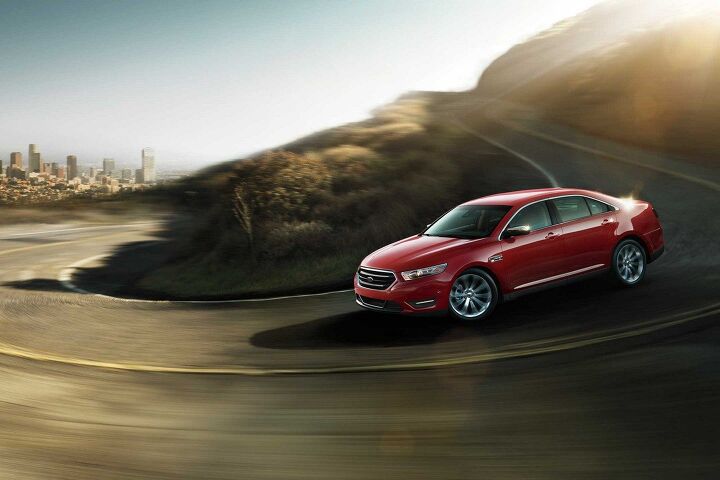















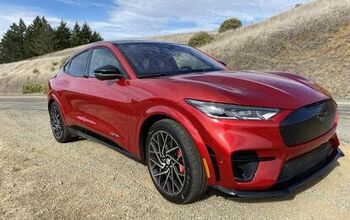
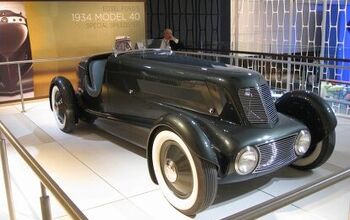

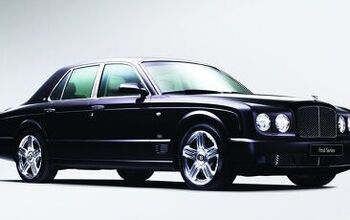
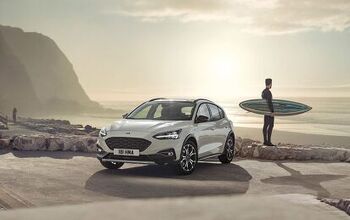


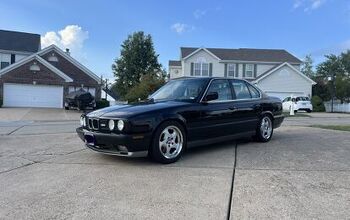







Comments
Join the conversation
I wish Ford well, I bear no animosity toward them. I am just not that interested in their vehicles except maybe the new upcoming Ranger and even then I might lean more toward the competition. I have had 2 Fords in the past that were good cars and a Mercury Lynx that was not so good. I am more likely to buy a Honda, GM, Toyota, Hyundai, Kia, or Nissan than another Ford. If I were buying a car the Fusion would be one I would consider but after driving a Focus I would not buy a Focus.
This was touched on in a couple of comments but I want to bring it front and center: Ford is still going to make sedans in other parts of the world. While I do scratch my head a little about ceding the market, only Ford knows what its margins are and that has to be the driver here. We've kind of seen this before, really, with the Ranger. Ford let the Ranger go when the margins vs. investment wasn't working for them but now that the market seems better it's coming back, albeit a couple years late. If they're smart, they'll learn from the decisions around the Ranger and whatever they have in the pipeline in Europe or China will be designed in such a way that they can be brought into the US with minimal changes in short order if the market pivots. Know when to hold 'em, know when to fold 'em, right?